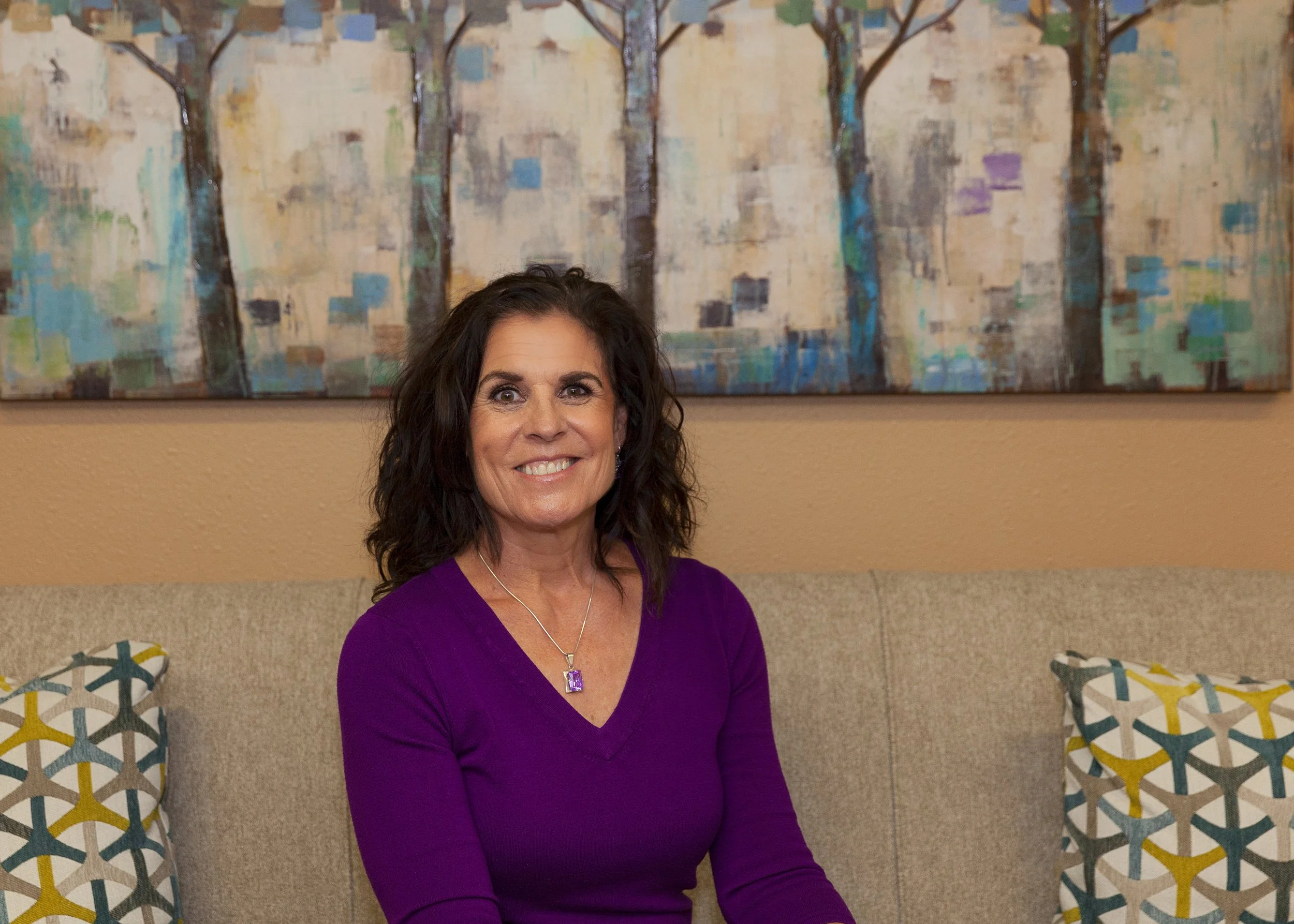Meet the Team
An Interview with Dr. Andrick
Dr. Rebecca Andrick understands the complexities of obesity and the struggles people face when trying to lose weight. Growing up with a father with severe obesity helped her develop empathy for the stigma and trials that overweight people face every day. “My dad couldn’t sit in chairs that most people fit into,” Dr. Andrick recalls. “He suffered from sleep apnea and had to get knee replacement surgery when the extra weight destroyed his joints.” At the time, Dr. Andrick didn’t know how much of an impact her childhood experiences would have on her future decision to become an obesity medicine specialist. She is certified as an Obesity Medicine Specialist by the American Board of Obesity Medicine and a Fellow of the Obesity Medicine Association.
Q: What is your educational background?
Andrick: I have a bachelor’s degree in physiology and cell biology with a minor in athletic coaching from the University of California, Santa Barbara. I played volleyball in high school and played for fun throughout college. Originally, I was interested in a career in physical therapy and sports medicine. But after learning more about osteopathic medicine — how the profession takes a holistic approach to treat all aspects of a person’s health, I decided to apply to medical school.
Q: What brought you to Colorado?
Andrick: I needed a change from California, where I’d spent my entire life. While doing a residency at Presbyterian St. Luke’s Medical Center, I fell in love with Colorado and the Rocky Mountains. I had a real sense that Colorado is where I needed to be.
Q: What’s your medical background?
Andrick: While completing my student clinical rotations in Ohio, Michigan, Colorado and other states, I discovered I was more interested in family medicine than sports medicine. After medical school, I joined a family medicine practice in Denver where I found myself prescribing medications for people who were struggling with obesity. I practiced family medicine for seven years and then focused on urgent care so I would have more time and flexibility to focus on my own family.
Q: How did Weigh to Wellness Denver get its start?
Andrick: While working in family medicine and urgent care, I started noticing an increase in children with weight problems. I became certified as a nutrition specialist in 2008 and began a small business offering cooking and nutrition classes to kids. Before long, their parents were asking for classes, too. Family physicians from around the area started referring patients with weight problems to me. I opened Weigh to Wellness Denver in 2010 so I could focus on nutrition and weight management. I get a lot of satisfaction working with patients on weight loss so they can live healthier, and often happier, lives.
Q: What sets Weigh to Wellness Denver apart?
Andrick: For starters, we’re a medical specialty office that provides medical services. As such, we bill insurance companies for our services. Obesity is a chronic medical disease that requires ongoing medical management just like diabetes, high blood pressure and other treatable health conditions. Primary care physicians refer patients to us for specialized care just as they send patients to specialists like cardiologists and endocrinologists. We have the expertise to help. And because we accept insurance, our care is often more affordable.
Q: What is your approach to weight loss?
Andrick: Our motto at Weigh to Wellness Denver is “We meet people where they are.” We don’t focus on what led to the weight problem. Instead, we focus on what’s happening in a patient’s life now and what changes they’re able to (and willing to) make. People often want to know “What is the program?” We don’t have a one-size-fits-all program. We customize weight management plans for each patient. Most of our patients have been on several diets by the time we see them, often with some successful weight loss but more often followed by weight recurrence. We work on nutrition education for a nutrient-dense, high-quality diet but with the idea that this can become a lifestyle change for the longer term.
Q: What can patients expect when they come to Weigh to Wellness Denver?
Andrick: Initially, patients meet with me or our physician assistant to review their medical history, weight history, current symptoms and what their diet looks like overall. We discuss treatment options and make a plan. We then have them follow up with our dietician who creates an individual weight-management and food plan. We typically see patients every 2-4 weeks and then space out the visits as people feel confident with their progress.
Q: What’s your view on weight-loss medications?
Andrick: It helps to think about excess weight and obesity as similar to other chronic conditions like high blood pressure or diabetes where medications can really help with successful treatment. Today’s FDA-approved anti-obesity medications are more effective and safer than ever. The medications help people feel less hungry and often less interested in food which helps with eating less and sticking with healthier options. For patients who are interested in this treatment, the initial weight-loss success can be the push they need to make dietary and lifestyle changes and continue the pattern of weight loss.
Q: What role does diet play in weight loss?
Andrick: Weight loss is mostly about making more nutritious choices to fuel your body. That sounds simple, but it’s really challenging for most of us to know what to eat especially when we face so many food choices in stores and restaurants. This is another example of how my team meets a patient where they are. A patient may need help stocking their kitchen, learning how to prepare healthier meals, or changing a habit like grabbing fast food a couple of times a week or drinking soda.
“We offer a full spectrum of services to help people lose weight and keep it off.”
We ask patients to keep a food journal. Our registered dietitians evaluate this information to help patients make realistic, sustainable dietary changes. We help patients make the gradual shift to higher-protein, lower-carb meals with healthy fats and lots of fruits and vegetables. These dietary changes are more likely to stick when you do them gradually and don’t feel like you’re depriving yourself. I encourage patients to make smart food choices 80% of the time. With this mindset, dietary change doesn’t feel too hard.
Q: What role does exercise play in weight loss?
Andrick: During active weight loss, your diet is key. But physical activity is critical to making sure the lost weight does not recur. We often think weight loss is the hardest part, but keeping it off long term is really the hardest part. That’s why we have our patients start doing some form of physical activity they enjoy during the weight-loss phase. We work with patients on learning how to do strength training and other exercises safely. We want movement to become an integral part of a patient’s day. Again, we meet you where you are. Some patients only have enough stamina to walk for 15 minutes twice a week. That’s great! We help them build on that, encouraging them to add more minutes, go a third day or pick up their pace. By the time a patient has lost weight, regular physical activity is now a part of their lives.
Q: What pediatric services do you offer?
Andrick: We provide nutritional counseling to overweight children and their families. Children often have a much harder time losing weight than adults, especially if family members aren’t supportive or making changes, too. Depending on the child, I may have them focus on maintaining their current weight so they can grow into their weight as they get taller. This approach often works because we’re not asking a child to give up their favorite foods but instead to eat them in moderation.
Q: What other services do you offer at Weigh to Wellness Denver?
Andrick: We offer a full spectrum of services to help people lose weight and keep it off. We also see patients with other nutritional issues like gastrointestinal problems, food intolerances or underweight conditions. Our services include:
Nutrition education and individualized food plans to fit your needs
FDA-approved, prescription medications for weight reduction
Pre- and postsurgical counseling for patients undergoing bariatric weight loss surgery
Laboratory evaluation as needed for metabolic co-morbid conditions and nutrient deficiencies
Bioimpedence body composition testing
Indirect Calorimetry for resting metabolic rate measurement
Small group cooking classes
Online support groups for people experiencing disordered eating
Referrals to mental health counselors who can address disordered eating







